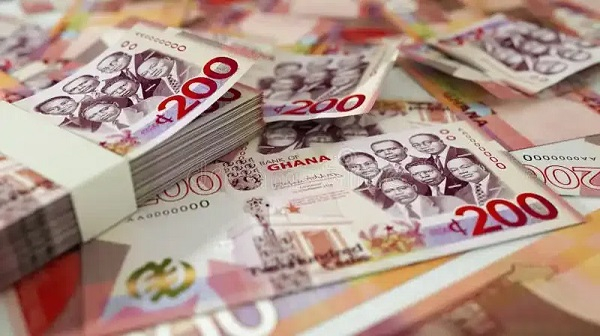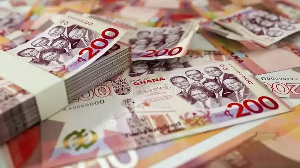The $367 million credit facility from the International Monetary Fund has been deposited into the account of the Bank of Ghana.
This follows Ghana and the IMF successfully completing the fourth review under the Extended Credit Facility programme.
The funds, received on Wednesday, July 9, 2025, mark the fifth tranche of the $3 billion IMF programme approved in May 2023.
This disbursement is expected to strengthen Ghana’s external buffers, stabilise the cedi, and help government meet critical balance-of-payment needs.
It would be recalled that the Akufo-Addo-led government announced on July 1, 2022, its intention to seek a $3 billion financial bailout programme from the IMF to stabilise the wobbling economy, curb high inflation, and halt the depreciation of the cedi against major trading currencies such as the dollar, pound sterling, and euro.
After submitting its application and receiving consideration, a team from the IMF arrived in the country from July 6 to July 13, 2022, to engage with Ghanaian authorities for a possible economic support programme.
A staff-level agreement between the Government of Ghana and the IMF was reached in December 2022.
On May 17, 2023, the IMF’s Executive Board approved Ghana’s $3 billion loan facility. The first tranche of $600 million was received by the Bank of Ghana (BoG) on Friday, May 19, 2023.
In January 2024, the second tranche of $600 million was disbursed to Ghana as part of the three-year bailout programme, a week after the nation reached a deal with bilateral creditors to restructure its debt.
In July 2024, the government received US$360 million as the third tranche of Ghana’s bailout package with the International Monetary Fund (IMF).
This was after Ghana achieved 98% participation and consent solicitation from Eurobond holders in restructuring the country’s external debt.
IMF Mission Chief for Ghana, Stéphane Roudet, stated that performance under the IMF-supported programme had been generally satisfactory.
He praised Ghana’s progress in implementing economic reforms, but emphasised the need for continued fiscal discipline and structural reforms to ensure sustainable economic growth.
The cash, meant for budget support and stabilisation of the local currency, was officially credited to the Central Bank’s account on Tuesday, July 2, 2024, following the Executive Board’s approval of the second review on June 28, 2024.
As at that time, Ghana had received a total of $1.56 billion out of the $3 billion approved under the three-year Extended Credit Facility.
The IMF programme aims to restore macroeconomic stability and safeguard debt sustainability, among other objectives.
SA/MA
Cheque Fraud EXPOSED: How it works and how to stay safe

